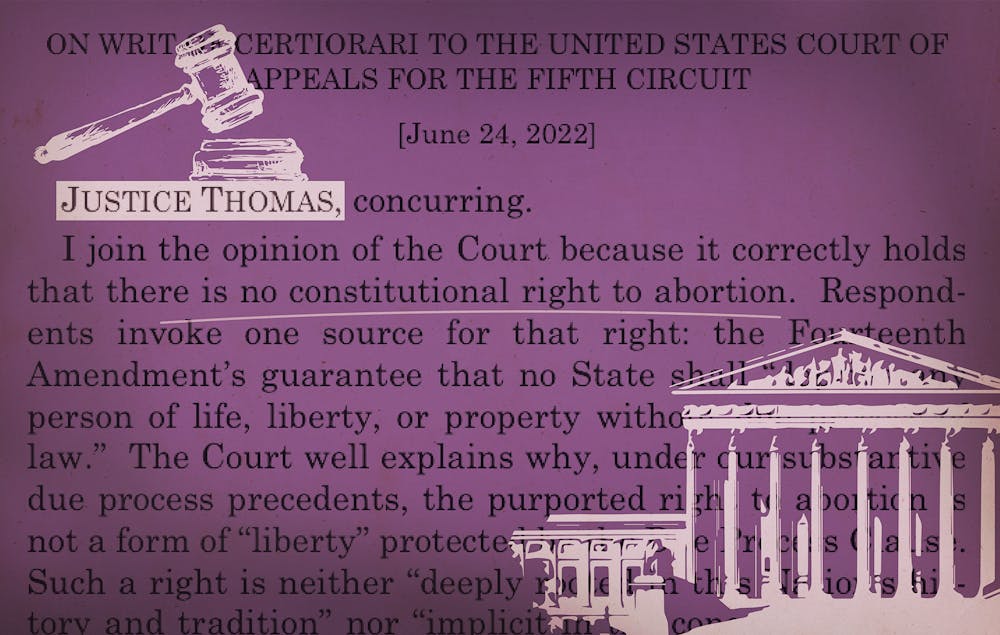Clarence Thomas has a brilliant legal mind. But I hate the role he plays on the Supreme Court.
While most people are aware Roe v. Wade was overturned in June, I’m assuming that most didn’t read Dobbs v. Jackson Women’s Health Organization – the case that overturned Roe – in its entirety. I can see why (it's long), but it’s really important, especially the case's concurring arguments.
While Chief Justice John Roberts and Justice Brett Kavanaugh both wrote interesting but somewhat unsurprising concurrences, Justice Clarence Thomas’ was gut-wrenching. He went rogue in his concurrence, calling for a rollback of several fundamental rights, despite the majority’s claim that no other precedents were at risk because of the Dobbs decision. Thomas' concurrence has a lot to do with substantive due process as it relates to the due process clause of the 14th Amendment.
The due process clause, which protects life, liberty, and property from being restricted at the hands of the state, is extremely important and commonly referenced. Substantive due process allows courts to prevent government infringement on fundamental rights more generally (stated in the Constitution or not) — a nightmare to Thomas.
In his concurrence, he opens the door to other important precedents based on substantive due process, using Dobbs as an opportunity to spew selectively-biased opinions.
I’ll let Thomas do the talking: “In future cases, we should reconsider all of this Court’s substantive due process precedents, including Griswold, Lawrence, and Obergefell. Because any substantive due process decision is 'demonstrably erroneous,' we have a duty to 'correct the error' established in those precedents,” he writes.
The cases that Thomas mentions here – Griswold, Lawrence and Obergefell – protect the rights of married couples to purchase contraception, the right to engage in private, consensual sexual acts and the right to same-sex marriage, respectively.
He basically says that, while they’re at it, the Court should really double-check the constitutionality of other critical precedents. His words suggest that they should be overturned, or at the very least reconsidered, because the Court offered just a little too much protection to vulnerable groups.
Maybe Thomas' opinion is merely a reflection of how dangerous he sees substantive due process to be. On the other hand, it's easy to see how closely his judicial decision-making mirrors his Catholic faith.



